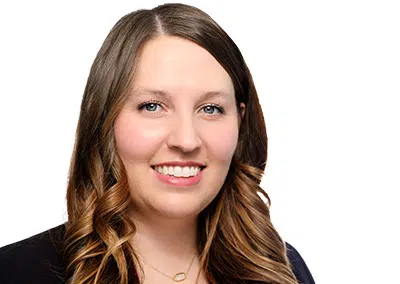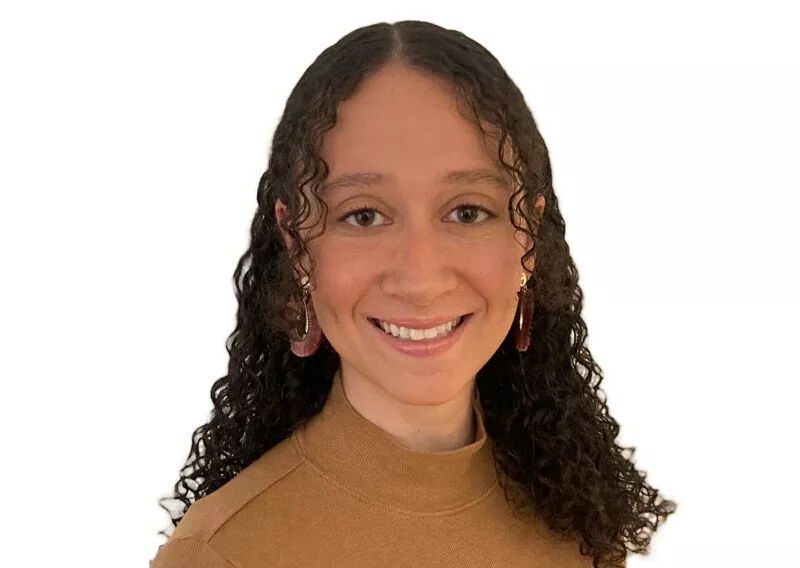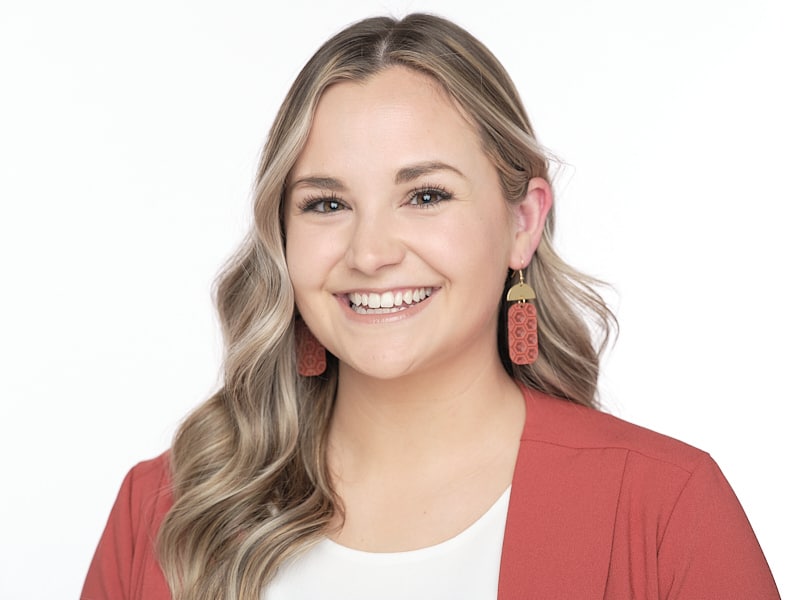
Questions About Therapy:
What Is Therapy Like?

Dr. Lisa Marie Bobby is a licensed psychologist, licensed marriage and family therapist, board-certified coach, AAMFT clinical supervisor, host of the Love, Happiness, and Success Podcast and founder of Growing Self.
Takeaways: If you haven’t had therapy before, you may feel a little nervous about it, and that’s normal. You know that therapy can involve making new connections, discovering new things about yourself, and talking about things that you don’t normally talk about. This article will give you an idea of what therapy is like so you can know what to expect.
- The client-therapist relationship
- A personal relationship with professional boundaries
- You’re in control in therapy
- A light in dark places.
Therapy may sound a little intimidating if you’ve never been before, but it’s really just a safe place for healing and personal growth. I hope this post helps to ease any pre-therapy jitters, and gives you a clearer sense of what a good therapeutic relationship actually feels like. I hope that by learning more about therapy, it will help you feel empowered and confident going into it.
Therapy is a Safe Space
First off, let’s talk about some of the common-but-unspoken anxieties you may be harboring about therapy. People don’t often talk about this but in my experience there can be some subconscious anxieties about “what could happen in therapy” that can become an obstacle to getting help when you need it.
Specifically, many people worry that therapy is going to be really uncomfortable or unpleasant, when in fact, the number one priority of a good therapist is to help you feel safe, comfortable, and understood — always.
For example, you may be concerned that your therapist will judge you, or push you into conversations you’re not ready to have. You may expect that your therapist will see through everything and somehow know all of your secrets. Or maybe you worry that, once you start talking about things, you’ll feel worse, not better.
Luckily, therapists are compassionate people with some special training, not supernaturally gifted mind readers or perceivers of flaws. They’ll only know what you choose to tell them, when you choose to tell them, and they’ll receive what you share with empathy, understanding, and, most importantly, without judgment.
If you get a good therapist, they will never push you into talking about things you don’t want to talk about. We are here to have a positive, affirming relationship with you that is for your wellbeing and benefit. Not all conversations are easy (there’s a reason you’ll find a box of tissues in every counselor’s office) but they should feel emotionally safe.
How do we create emotional safety for you? By focusing on the relationship we have with you, and making that the priority.
The Client-Therapist Relationship
If you’ve found the right therapist, their first priority will be creating an emotionally-safe environment where you can share openly and receive their feedback and support. Creating an environment like that requires building trust, which is a delicate and gradual process in any relationship. Just as you wouldn’t be expected (or advised!) to divulge your deepest, darkest secrets on a first date, your therapist or life coach won’t expect you to spill your guts the moment you walk through their door for the first time.
A therapeutic relationship is a professional relationship, but it’s also a real relationship. Just like any other, it takes time to create trust and understanding between you and your therapist.
Your first therapy session will likely involve paperwork, a conversation about legalities, and some broad-level questions about what you need help with. Over time, possibly after several preliminary sessions, you’ll open up a little more about what you’re struggling with and what in your life you’d like to change. Your therapist will listen attentively, asking insightful questions and getting a sense of who you are and how they can help you.
As they absorb your story over several sessions, reflecting back compassion and respect, you’ll begin to trust that nothing you say will be too much for them, or cause them to view you in a negative light. As that sense of trust and comfort grows, you’ll naturally build up to more intimate conversations, discussing more intimate thoughts, feelings, and experiences, if and when you’re ready.
Once that safe, therapeutic relationship is formed, you’ll look forward to meetings with your therapist. Your sessions should come to feel like a respite from the pressures of daily life, where you can be vulnerable and honest about difficult topics and receive empathy, validation, and valuable insights in return.
A Personal Relationship with Professional Boundaries
The relationship you have with your therapist should feel warm and collaborative. Like a good friend, they’ll take a genuine interest in your emotional well-being. You’ll most likely share a lot of laughs. After a while, you probably won’t think twice about crying in front of them.
But unlike a friend, your therapist will maintain some professional boundaries that keep the relationship comfortable for you both, and allow them to do their most effective work.
First, you will talk about yourself in therapy, not your therapist. This is just how therapy works. That doesn’t mean you can’t ever ask them personal questions; it’s perfectly natural to want to know a little bit about the person sitting across from you, absorbing the intimate details of your life. But compared to all other relationships, your relationship with your therapist will be markedly one-sided, and this is as it should be.
Therapists who share too much, especially about politics, religion, or other sensitive subjects, risk influencing what their clients choose to share with them. Every therapist feels comfortable with a different level of self disclosure, but most will use it sparingly, in situations they think will be helpful to you.
While your therapist will come to have genuine care and concern for you, and to feel real empathy for your pain and real joy for your victories, they’re trained to maintain a level of detachment. This detachment makes it possible for your therapist to do their job. Imagine if, instead, she absorbed the shock of every upsetting story or painful feeling that was related to her throughout the day. She’d be exhausted, overwhelmed, and in no shape to help anyone. You’d probably feel guilty for burdening her with so much upsetting information.
Showing empathy and compassion without getting swept up in an emotional whirlwind is an essential skill for therapists to help you grow. It’s what allows them to remain a steady anchor of support when you’re feeling unmoored.
Most importantly, your therapist will maintain strict confidentiality. They’ll never discuss the contents of your sessions with someone else, unless they have reason to believe you’re in danger of hurting yourself or others. This confidentiality is not only an ethical boundary, it’s a legal one, and a therapist who violates it could face penalties or lose their license to practice.
This absolute respect for your privacy helps you feel relaxed and open in therapy. Your therapist’s office may come to feel like a little safe haven, suspended from ordinary life, where you can safely explore scary or painful things, knowing they will stay right there.
Let’s Talk.
Schedule a Free Consultation Today.
You’re in Control of Therapy
A common fear that first-time therapy-goers have is that they’ll have to talk about topics they don’t want to discuss. This can be especially worrying for clients who live with the after effects of trauma, whose memories can trigger a cascade of overwhelming, painful emotions that they spend a lot of time and mental energy trying to avoid.
This fear can also be strong for people who struggle with toxic shame over things that they’ve done, or things that were done to them in the past. Our natural impulse when we feel ashamed is to hide ourselves from others, even people we’ve hired to see, hear, and understand us.
Fortunately, therapists are not in the business of pushing difficult conversations on clients who aren’t ready to have them. If those topics come up, they’ll come up on your timeline. The process of starting therapy is like getting into a pool; first you might dip your feet in and splash around a bit. Then you might ease yourself into the shallow end and spend a few sessions there, getting used to the chill of the water. Once you’re comfortably acclimated, you might let go of the ledge and begin to swim around.
But it’s all up to you. Your therapist is not going to push you into the emotional deep end.
If you do decide to discuss traumatic events in therapy, your therapist will have the skills to guide you through those conversations in a way that releases some of that trauma’s hold over you, and keeps you safe from re-traumatization. If you choose to discuss events from your past or circumstances in the present that you feel ashamed of, a therapist is equipped like no one else to listen to your story and respond in a way that can dissolve some of that shame.
Just as your therapist will set some boundaries with you, you’re always welcome to set boundaries with your therapist. If there’s something about their approach that you’re finding uncomfortable or unhelpful, you can tell them that. If they ask you a question you don’t want to answer, you’re always welcome to say, “I’m not ready to discuss that yet.” A good therapist may gently probe some tender areas such as anxiety or depression, if they believe discussing them will help you create a good space for yourself mentally. But if you tell them you don’t want to go there, they’ll respect your limits.
What Is Therapy Like: A Light in Dark Places
Everybody has wounds and shameful places, including your therapist. Revisiting those places with an empathetic, caring guide can be a remarkably healing experience, all on its own. You’ll likely find that what pains you today will pain you less tomorrow, once those wounds are brought to light and treated with the care and understanding they deserve.
And therapy isn’t all about darkness. It’s also about reaching your full potential, increasing your self love, and creating more joy in your life.
I hope that this discussion helped shine some light on the mystery of therapy and that it helped you feel more comfortable and knowledgeable about what therapy is like.
Your partner in growth,

Dr. Lisa Marie Bobby is a licensed psychologist, licensed marriage and family therapist, board-certified coach, AAMFT clinical supervisor, host of the Love, Happiness, and Success Podcast and founder of Growing Self.
Meet a Few of Our
Expert Therapists
The therapists and life coaches of Growing Self have specialized education and training and years of experience in helping people achieve their personal and professional goals. We use only evidence based strategies that have been proven by research to help you get clarity and direction, have better relationships, feel happier, and design your ideal life.
This website is devoted to your wellbeing, and offers loads of free information and actionable advice that you can start using today to create positive change in your life. Browse around to meet our experts, get free advice on our blog, listen to a podcast, or take our “How Healthy is Your Relationship” quiz.
Or, if the time is right, you can schedule a free consultation with any of us to talk about your situation — and, most importantly — your hopes for your future.
Let’s Talk.
Schedule a Free Consultation Today.
Therapy Questions, Answered.
Support For Your Growth
Our expert therapists have generously created an entire library of articles, activities, and podcasts to support you on your journey of growth. Please visit our “Happiness Collections” to browse our content collections, and take advantage of all the free resources we have for you. Or, if you’d like to educate yourself about the process and logistics of therapy, please help yourself to our “therapy questions” knowledge base below. It’s all for you!
Do I Need Therapy?
Wondering if your issues going to work themselves out, or is it time to talk to a professional? Here’s how to tell when it’s time for therapy.
Therapy Works, But How?
Great therapy can feel like magic, but it’s actually not. Learn how meaningful and effective therapy works.
What is Therapy Like?
What is therapy like? Learn what happens in therapy in order to feel empowered and confident.
What Kind of Therapist Do I Need?
There are many different kinds of therapists and many different types of therapy. What kind of therapist do you need? Find out!
What To Talk About in Therapy
Not sure what to talk about in therapy? Here are some tips to ensure you get the most out of your therapy sessions.
Therapy Consultation: What to Expect
How to prepare for your first therapy appointment, and learn what to expect in therapy sessions.
Coaching vs Therapy
What’s the difference between coaching and therapy? Find out which approach is right for you.
What is Cognitive-Behavioral Therapy?
Cognitive-behavioral therapy is the “gold-standard” of effective, evidence-based therapy. Learn about CBT.
What is Talk Therapy?
How does talking about something help you make changes? Or… does it? Learn the pros and cons of traditional talk therapy.
Why Evidence-Based Therapy Matters
Effective therapy is life-changing, but some therapy is a waste of time and money. Evidence-based therapy makes the difference.
How to Find a (Good) Therapist
Not all therapists are the same. Learn how to find a good therapist (and spot the warning signs of a bad one).
Therapy For Healthy Relationships
Working with a true relationship expert helps you learn, grow, love, and be loved.
Learn about our approach to helping you build healthy relationships.
Guide to Online Therapy
Online therapy is just as effective but even easier than in person therapy. Here’s what to expect from good online therapy.
Denver Therapist
Explore your options for a Denver therapist who specializes in personal growth and healthy relationships.
How to Get a Therapist
Ready to try therapy? Here’s a comprehensive guide on how to get a therapist who is competent to help you.
Therapy Reviews
Curious to know more about what working with us is really like? Browse Growing Self reviews / “best online therapy reviews” from our clients.
How Much Does Therapy Cost?
Good therapy is priceless, but not all therapy is valuable. Learn the cost of therapy that’s affordable and effective.
Does Insurance Cover Therapy?
Yes, insurance covers therapy… but only sometimes. Learn when (and how) health insurance covers therapy, and when it doesn’t.
Help Someone Get Help
If you have a loved one who is struggling in their relationship, you can help them get help by “gifting” therapy. Here’s how…
Divorce & Breakup Recovery
Losing a relationship is uniquely painful and challenging. With the right support, you can heal, grow, and move forward. Learn about our divorce and breakup recovery services.
More Questions? Let’s Talk.
We’re available by phone, email and chat, and happy to answer any of your questions personally. Get in touch, anytime.
Start Therapy
Start your journey of growth today. Get personalized recommendations, and have a free consultation meeting with the therapist of your choice.




















